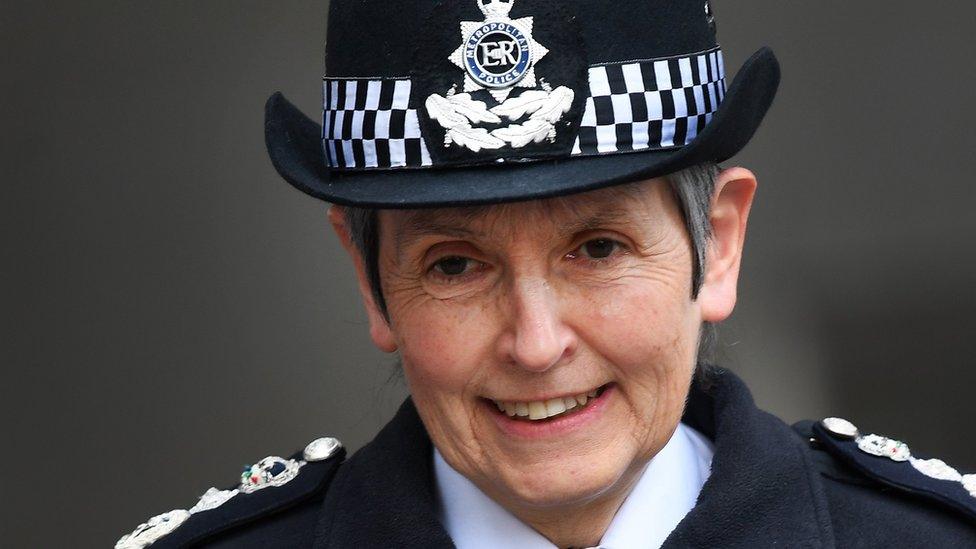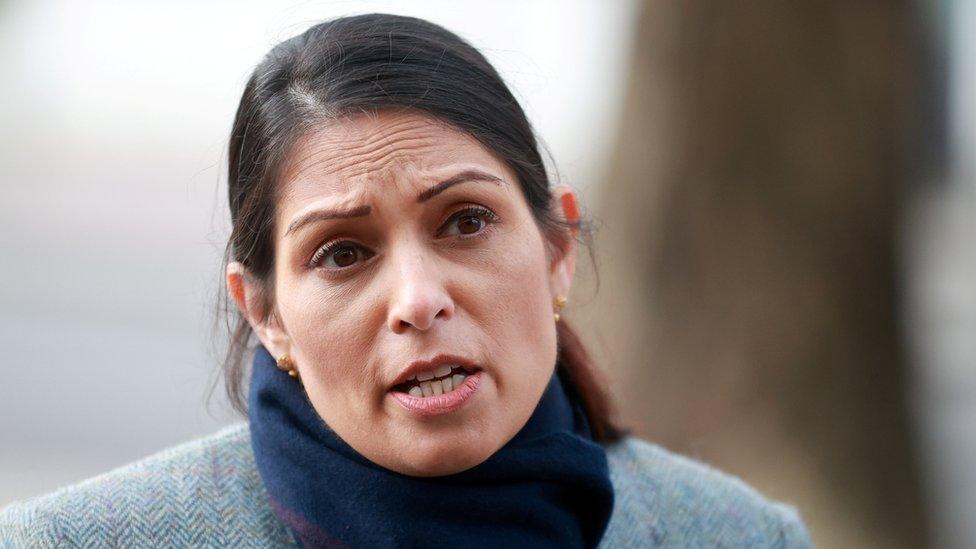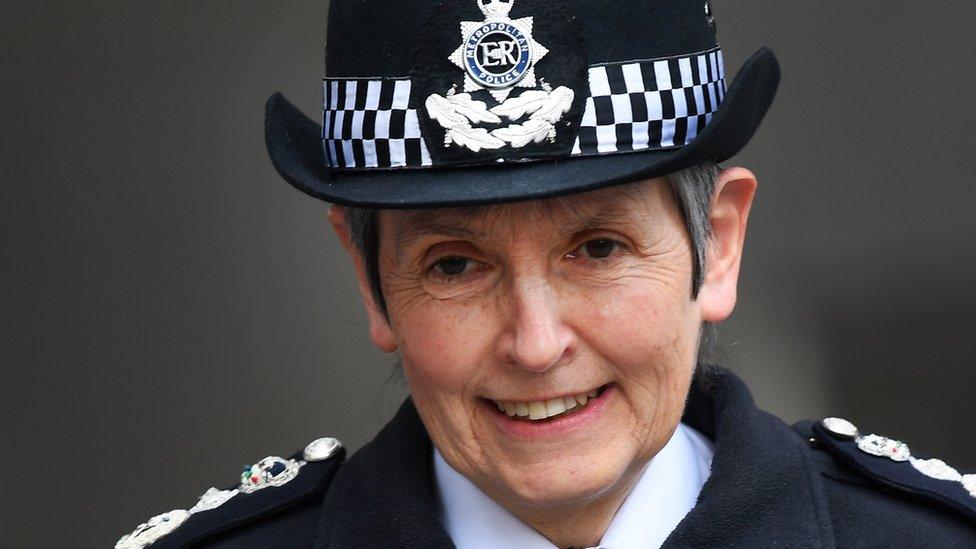Met Police put into a form of special measures
- Published

The UK's largest police force will have to report to inspectors more regularly
The Met Police has been placed into an advanced stage of monitoring, in what Home Secretary Priti Patel has described as "special measures".
Recently the force has been hit by a series of scandals including the murder of Sarah Everard, the strip-search of Child Q and officers being caught exchanging offensive messages.
In February Dame Cressida Dick quit as commissioner.
Ms Patel said she backed the move taken by HM Inspectorate of Constabulary.
HM Inspectorate of Constabulary and Fire and Rescue Services (HMICFRS) said in a statement: "We can confirm that we are now monitoring the Metropolitan Police Service through our Engage process, which provides additional scrutiny and support to help it make improvements."
The Engage level of monitoring is used by HMICFRS when a force "is not succeeding in managing, mitigating or eradicating" a cause of concern.
It means the UK's largest police force will be required to report to inspectors more regularly and could be asked to meet specific crime-fighting targets.
The Met could also receive support from the College of Policing, the National Police Chiefs Council or other external organisations.
In a statement the force said: "We recognise the cumulative impact of events and problems that the Met is dealing with.
"We understand the impact this has had on communities and we share their disappointment.
"We are determined to be a police service Londoners can be proud of. We are talking to the inspectorate about next steps."
Other forces that have been the subject of the inspectorate's Engage process include Greater Manchester Police in 2020 and Cleveland Constabulary in 2019.

Dame Cressida Dick's replacement as commissioner is expected to be announced this summer
Ms Patel said it was clear to her the Met Police was falling short in getting "the basics right".
She said she backed the inspectorate's action and called on both the force and Mayor of London Sadiq Khan "to take immediate action to begin addressing" the issues facing the Met.
The home secretary added: "The process to recruit a new commissioner is well under way and I have made clear that the successful candidate must demonstrate sustained improvements in the Met Police in order to regain public trust both in London and across the country.
"The new commissioner will need to deliver on the public's priorities for the police - making our streets safer, bearing down on crime and bringing more criminals to justice, while continuing to recruit thousands of new officers to protect local communities."

The new Met Police commissioner will be appointed by the Queen following a recommendation by Home Secretary Priti Patel
Mr Khan said the watchdog had raised very serious concerns and called for "root-and-branch" reforms to change the Met Police's performance and culture.
He added: "A series of appalling scandals have not only exposed deep cultural problems but have damaged the confidence of Londoners in the capital's police service.
"The decision by the HMIC to now move the Met into special measures has laid bare the substantial performance failings by the force."
'Little to no faith'
The family of Child Q, the teenager who was strip-searched in Hackney by Met Police officers while she was menstruating, have welcomed the decision taken by the inspectorate.
In a statement they said: "The Met has shown time and again that it cannot do its job properly and its officers' actions have had life-changing, devastating consequences for innocent people across London, including Child Q.
"It is no wonder that there is little to no faith left in the Metropolitan Police.
"We hope the additional scrutiny of special measures will result in permanent change in the force's culture and practices."

Analysis
By Lucy Gilder BBC Home Affairs Researcher
Under the so-called special measures, the Met will face greater scrutiny by inspectors and will be expected to report to them more regularly.
Acting Commissioner Sir Stephen House will be required to submit an improvement plan to the HMICFRS for inspection.
As part of this process, the Met may receive support to improve from bodies such as the National Police Chiefs' Council.
Later on, a policing performance oversight group will consider the changes the Met has made to address its problems.
This is the first time in the Met's history that it has been placed under special measures.
Greater Manchester Police, Cleveland Police and Gloucestershire Constabulary are the only other police forces in England and Wales who are also being monitored by the HMICFRS.

Follow BBC London on Facebook, external, Twitter , externaland Instagram, external. Send your story ideas to hellobbclondon@bbc.co.uk, external
Related topics
- Published11 February 2022
